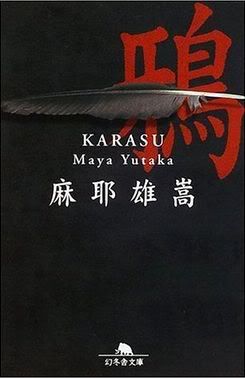 After his younger brother Abel returns from a small mountain village not even mentioned on any map and getting murdered shortly afterwards, Kain finds and sneaks into this village to find out the truth behind his brother's life he had there, the reason for his sudden return and the identity of his murderer. His investigations unfold a tale of envy, hatred and hypocrisy...
After his younger brother Abel returns from a small mountain village not even mentioned on any map and getting murdered shortly afterwards, Kain finds and sneaks into this village to find out the truth behind his brother's life he had there, the reason for his sudden return and the identity of his murderer. His investigations unfold a tale of envy, hatred and hypocrisy...While Kain investigates, the reader gets to know the village, its rites and systems in a very extensive, lush manner and the same goes for the extent of the central characters' depiction. While some more or less dragging passages are bound to occur in such a countryside mystery setting, Maya Yutaka again manages to convey the whole package in a sometimes not so easy to read but in the end rewarding style, that already makes this book enjoyable for the setting and characters. Fortunately, since otherwise the mystery plot is not as prevalent as in certain particularly orthodox novels where the focus is definitely on the whodunit.
However, apparently typical for this author, the ending is what makes this an exceedingly shocking and unique work. After all those twists, the reader will most likely feel like the bottom under his feet is swept away in an instant. The narrative tricks were this shocking, really. Maya Yutaka manages to use absolutely classical tricks to such an extent that I just did not come up with that outcome. It's shocking in a sense that I immediately skimmed through some passages again to organize what was actually happening. In fact there are some details left for interpretation, but not in a way where the possibilities are endless, but rather where it becomes clear after some thinking and connecting. This only goes for one part of the final twist anyway, the crimes themselves are not even directly affected by this and make sense immediately, so this again shows the trademark of Maya: Self-referential, self-destructing orthodox mystery.
What's really interesting is that by weaving the theme of the older brother hating his pampered, carefree younger brother into this whole book, Maya kind of reaps the hate he spawned in a part of the orthodox mystery readers with his earlier works. Violence towards what resembles, but at the same time differs and therefore becomes the target of antipathy with the wish to eliminate clearly references this whole bashing rather prevalent among readers of that genre. I won't spoil too much, but the way Maya fuses this classical orthodox tricks with the plot, he obviously tries to convey that he wants to cherish and criticize or even destroy at the same time and that he does not concur with the opinion that a work does not fulfill the conditions of its supposed genre, if it points out and challenges those. It's a rather radical style (for the time it was written) and I can understand if there are mystery readers who are unable to cherish it, but my positive attitude towards this author definitely strengthened with this.
No comments:
Post a Comment